5 Common Financing Issues For HDB Upgraders (And How To Solve Them)
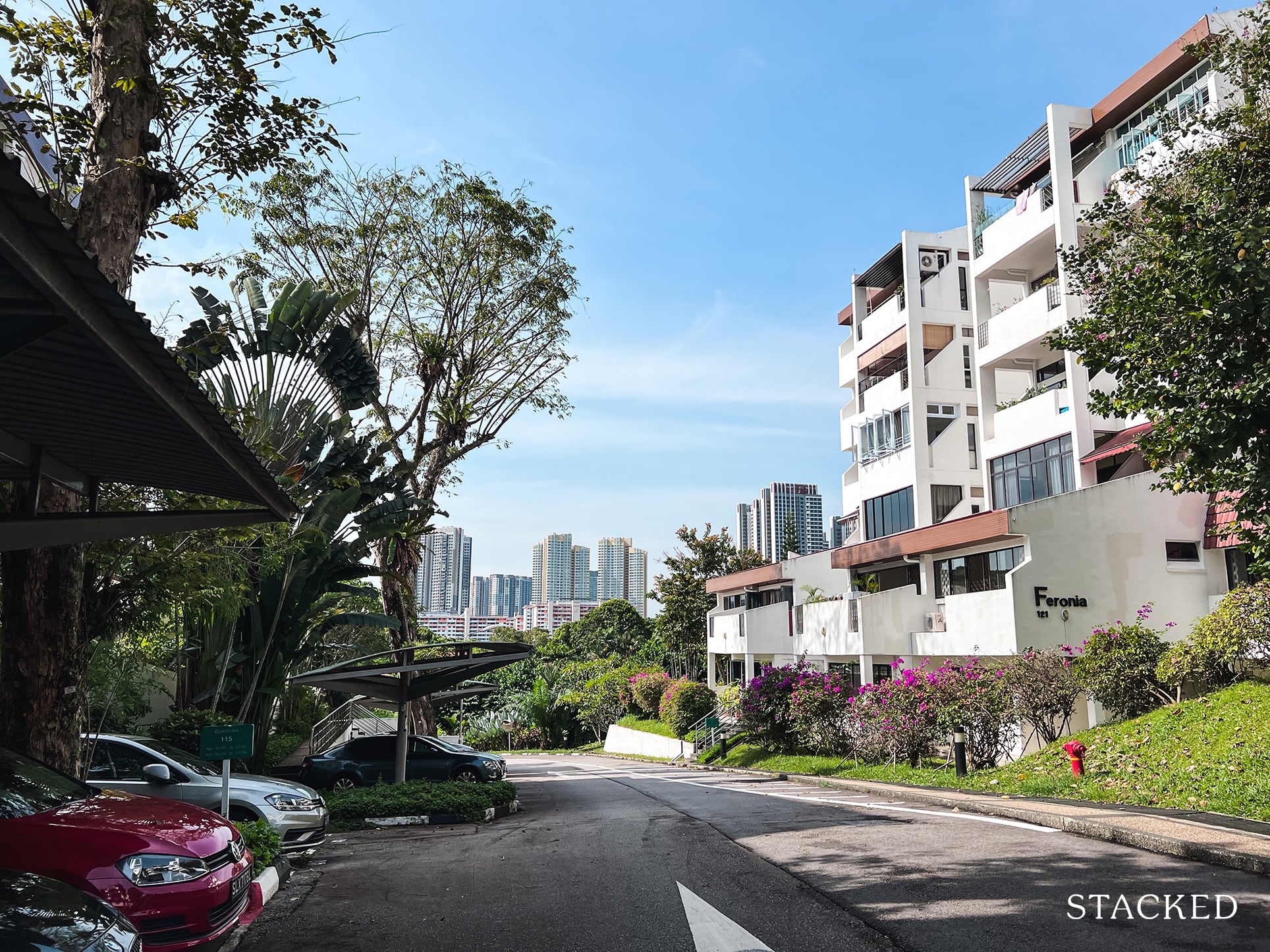
Get The Property Insights Serious Buyers Read First: Join 50,000+ readers who rely on our weekly breakdowns of Singapore’s property market.
A seasoned content strategist with over 17 years in the real estate and financial journalism sectors, Ryan has built a reputation for transforming complex industry jargon into accessible knowledge. With a track record of writing and editing for leading financial platforms and publications, Ryan's expertise has been recognised across various media outlets. His role as a former content editor for 99.co and a co-host for CNA 938's Open House programme underscores his commitment to providing valuable insights into the property market.
Ever since 2019, HDB upgraders have made up the bulk of private home buyers. A combination of rising demand, with record-high resale flat prices, has further made the past 2 years seem like an ideal time for those seeking condo ownership. However, an upgrade may not be as simple as “just sell and then buy”. Here are some common financing issues that upgraders may face:
Table Of Contents
1. Lower LTV due to an outstanding home loan
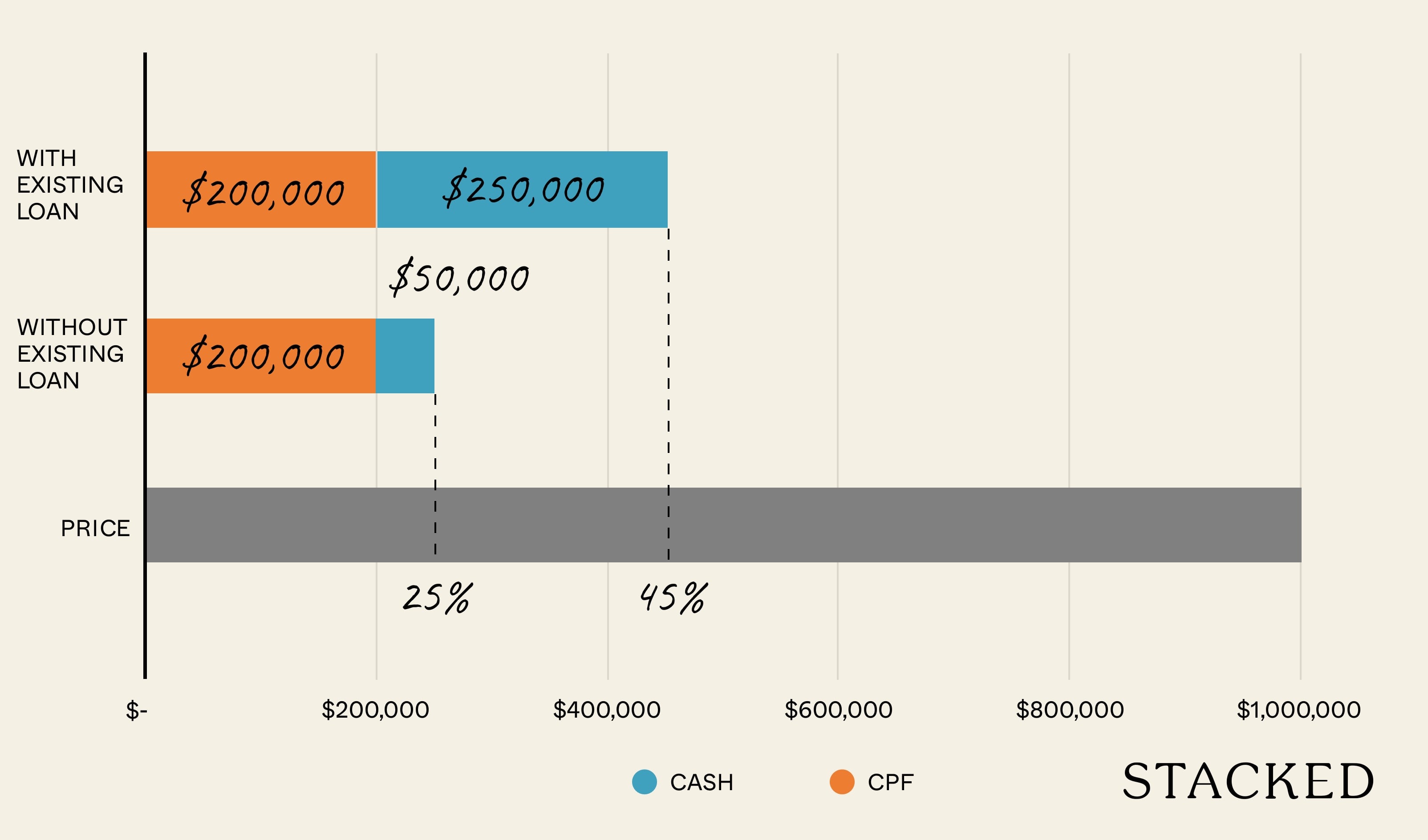
This could happen if you purchase the condo unit, before you’ve discharged the loan on your HDB flat.
Under normal circumstances, the maximum Loan To Value (LTV) ratio for a condo is 75 per cent of the price or value, whichever is lower. However, if you have another outstanding home loan at the time of application, the LTV will fall to just 45 per cent. In addition, the minimum cash down will be increased from the first five per cent, to the first 25 per cent.
For example, if you purchase a $1 million condo unit after discharging your previous home loan, your minimum down payment would be $250,000, of which $50,000 has must be in cash (the rest can be in any combination of cash or CPF).
However, if you still have an outstanding home loan, the minimum down payment rises to $550,000, of which $250,000 must be in cash.
One way around this is to try and explain to your lender that you’re in the process of selling your former home. If you can provide the documentary proof needed (e.g., your buyer has signed the Option To Purchase), you can sometimes be given the normal LTV limits.
Otherwise, the only real way around this is to discharge your former home loan first, and buy the new condo afterward.
2. Misunderstandings over the bridging loan
A bridging loan can be used to cover part of the costs for your new property, while you await sale proceeds from your flat. Be clear on these two points regarding bridging loans:
- The bridging loan does not automatically “keep going” until you receive the sale proceeds from your flat. All bridging loans have a maximum loan tenure of six months. You must be able to repay it in full by then, even if for some reason your flat remains unsold.
- The interest rate on a bridging loan is not the same as the interest rate on a home loan. It’s often at least five per cent per annum; and the overall cost can be even higher, if there are processing fees.
Most realtors or mortgage brokers will only advise the use of bridging loans under specific scenarios; such as if the buyer for your flat pulled out at the last moment, but you still want to hold on to a condo unit you’ve found.
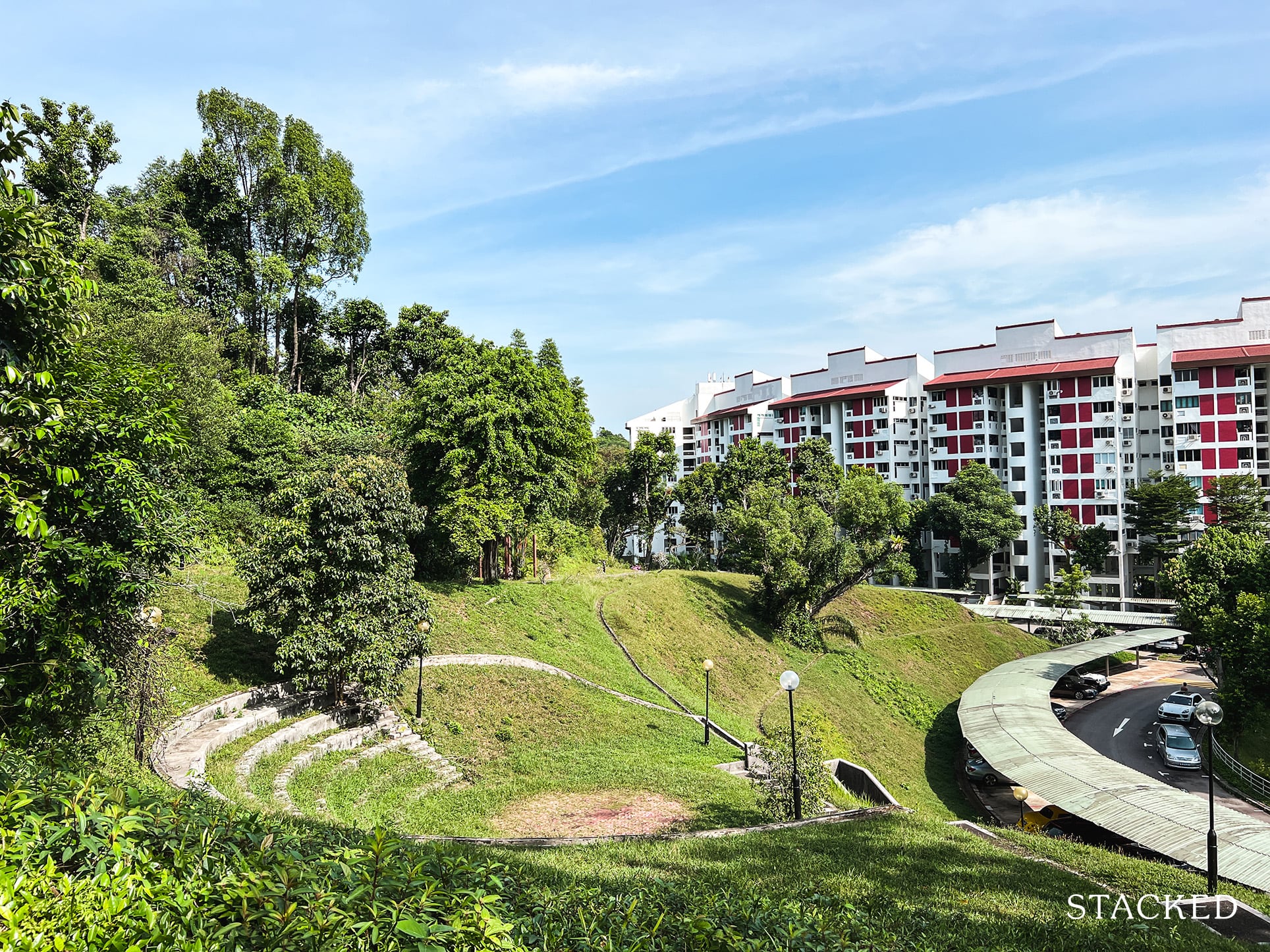
Due to the significant interest repayments, HDB upgraders should not freely use bridging loans, unless the situation really calls for it.
If you find yourself requiring such a loan, use a mortgage broker to find the bank with the cheapest possible rates – don’t just take the very first option you find.
3. Negative cash sales
We cover this topic in greater detail in this article. But to quickly summarise: you may find that, upon discharging your home loan and refunding your CPF, you have no sale proceeds left.
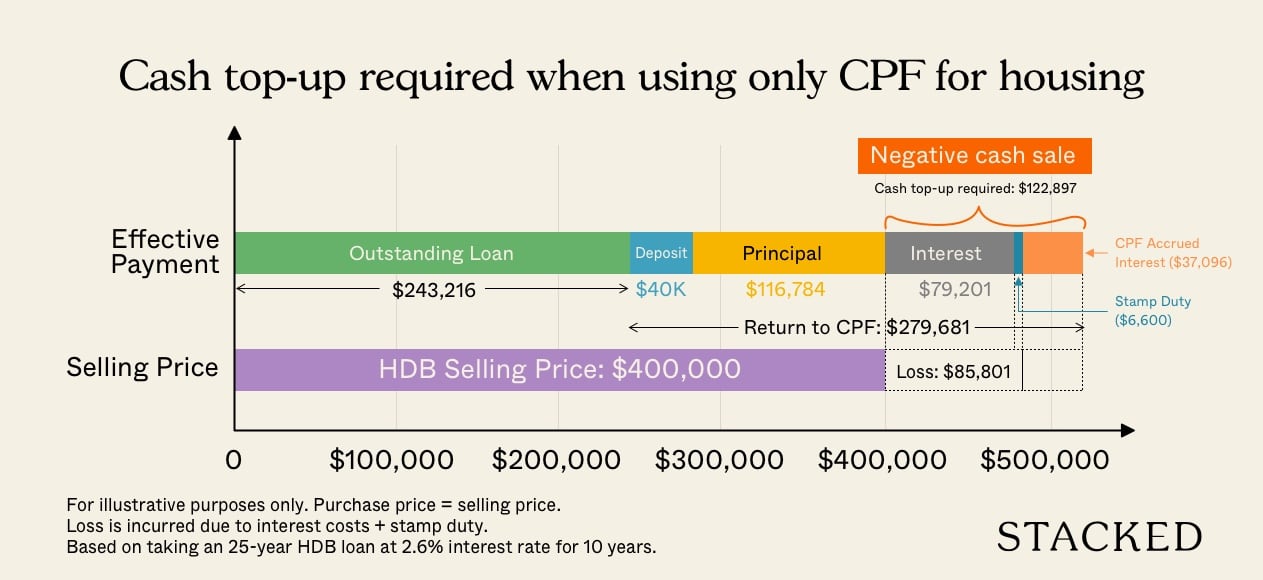
This leaves you unable to pay the minimum cash down for your next home, as bank loans always require you to pay at least the first five per cent in cash.
HDB upgraders must bear in mind that negative cash sales can happen even when buying Executive Condominiums (ECs). This is because there are no HDB loans for ECs; you must use a bank loan.
The only real way to deal with this is to be conscious of your CPF usage. It’s good to check exactly how much you need to refund when you sell your flat, and make sure you’ll still have sufficient cash left over.
Note that for some cases, the longer you service your home loan with CPF, the more likely you are to see a negative sale. If you want to upgrade at some point, we suggest paying for your flat with a combination of cash and CPF.
4. The maximum loan tenure is impacted by your age
Many HDB upgraders are in their mid-40’s or older. For this group of buyers, keep in mind that your maximum loan tenure is shorter.
In conjunction with the lowered Total Debt Servicing Ratio (TDSR) of 55 per cent*, this might necessitate a higher cash outlay.
For example, if you’re 45 years old when you upgrade, the maximum loan tenure (to get full financing) is only 20 years, not 25 years. This is because your LTV would fall from 75 per cent to 55 per cent, if your loan tenure plus your age would exceed the retirement age of 65.
Shortening the loan tenure will increase the monthly loan repayments, potentially causing it to breach the TDSR. For example:
If you have a $1 million loan at 1.3 per cent, for 25 years, the monthly loan repayment is about $3,900.
If you reduce the loan tenure to 20 years, the monthly loan repayment rises to about $4,700.
Assuming an income of $8,000 per month, your TDSR cap would be $4,400. So by shortening the loan tenure, you’ve also busted the TDSR limit.
There is a solution to this, and that’s to borrow less (i.e., make a bigger down payment). As such, older HDB upgraders may need to crunch the numbers, and save up for a bigger cash outlay.
*TDSR was lowered from 60 per cent to 55 per cent in the December 2021 cooling measures
5. Your co-borrower has developed credit issues
For some couples, all the credit usage is placed on a card under one person’s name. This results in one spouse sometimes having zero credit history. So when the credit report gets pulled up, the lender will only see a grade of “Cx”. This means there is insufficient data to assign any credit score.
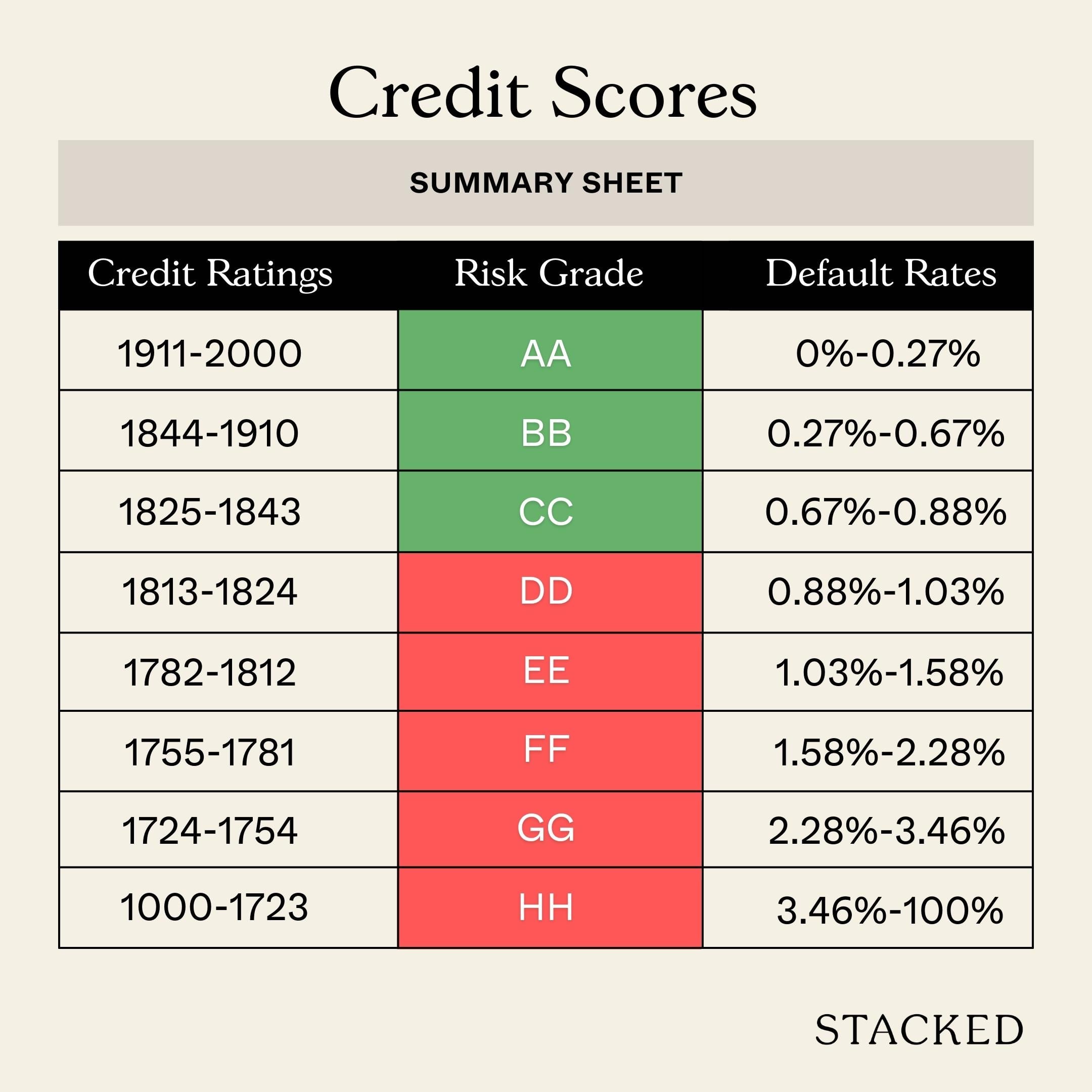
This can be a bit disconcerting, as couples may wonder why their creditworthiness is “bad” when they’ve paid everything on time, and share only one credit card. The good news is that this is a minor issue; just get the co-owner to use their own credit card as a mode of payment only, for around 12 months before loan application.
(By mode of payment, we mean charging purchases to the card but always paying it back in full, thus incurring no interest. Don’t let roll over debt accrue on the card, as that can worsen credit scores as well).
A bigger problem is if, over the years, your co-owner has run into issues such as defaults, constant delinquent payments, or bankruptcy. Note that for bankruptcies, there may be a waiting time of five to seven years before they can apply for a home loan, even after receiving the official letter of discharge.
This is a spanner in the works when it comes to upgrading; as it means you may have to take on the mortgage without a co-borrower. That means being able to meet the TDSR single-handedly, and possibly a higher down payment; whether you can do this is highly dependent on the sale proceeds of your flat.
Otherwise, you might consider approaching a non-banking financial institution for a home loan. We do know of cases where even recently discharged bankrupts have been able to get home loans; but we would do this only as a last resort, as the interest rate charged can be much higher than the bank.
In any case, we suggest talking to a mortgage broker first, who may be able to help you negotiate with various lenders.
For more on the Singapore private property market, or in-depth reviews of new and resale properties alike, follow us on Stacked. You can also contact us directly if you’re having home loan issues, and we can put you in touch with the right experts.
Ryan J
A seasoned content strategist with over 17 years in the real estate and financial journalism sectors, Ryan has built a reputation for transforming complex industry jargon into accessible knowledge. With a track record of writing and editing for leading financial platforms and publications, Ryan's expertise has been recognised across various media outlets. His role as a former content editor for 99.co and a co-host for CNA 938's Open House programme underscores his commitment to providing valuable insights into the property market.Read next from Property Advice
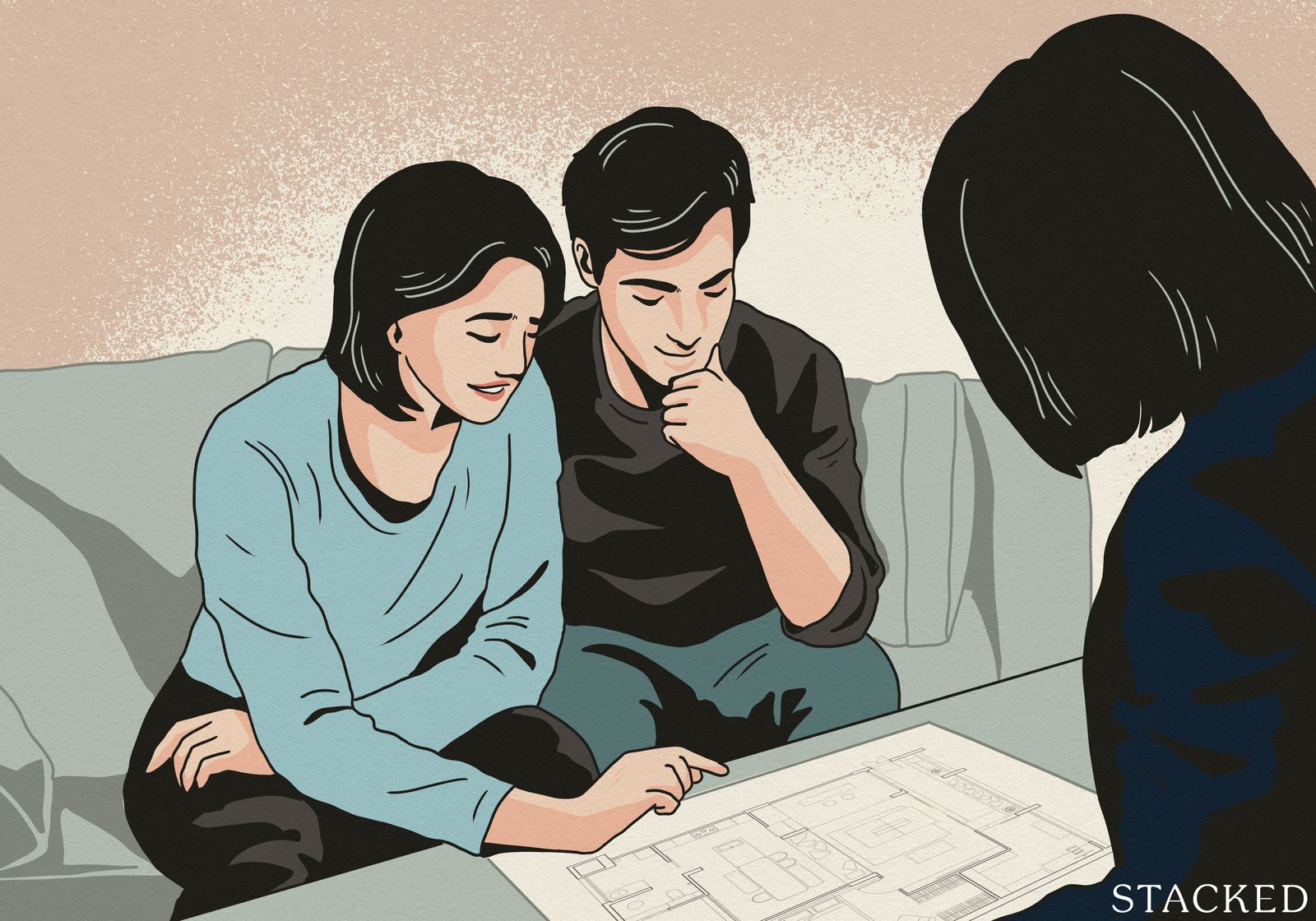
Property Advice We Ranked The Most Important Things To Consider Before Buying A Property In Singapore: This One Came Top
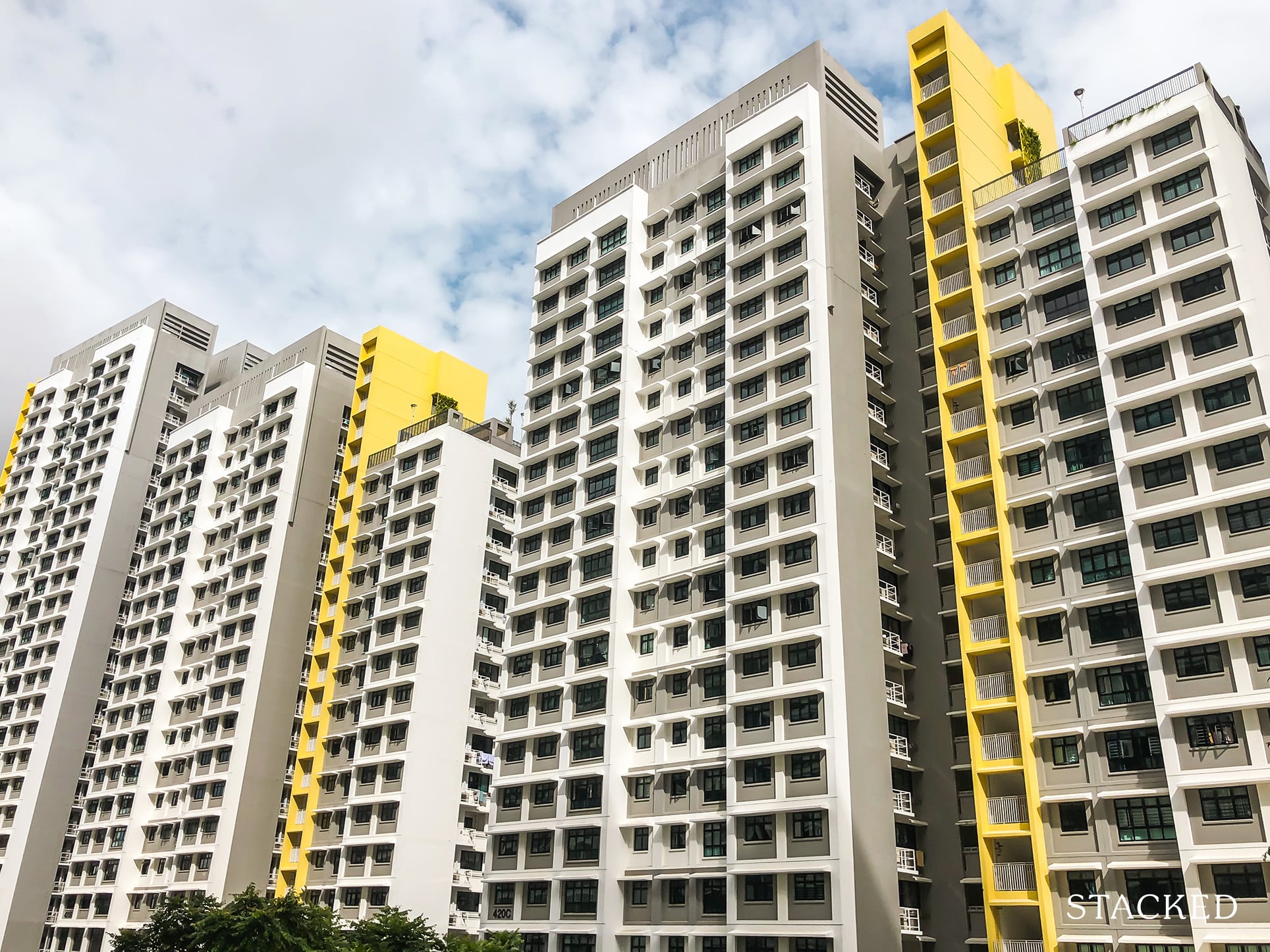
Property Advice Why Punggol Northshore Could Be The Next Hotspot In The HDB Resale Market
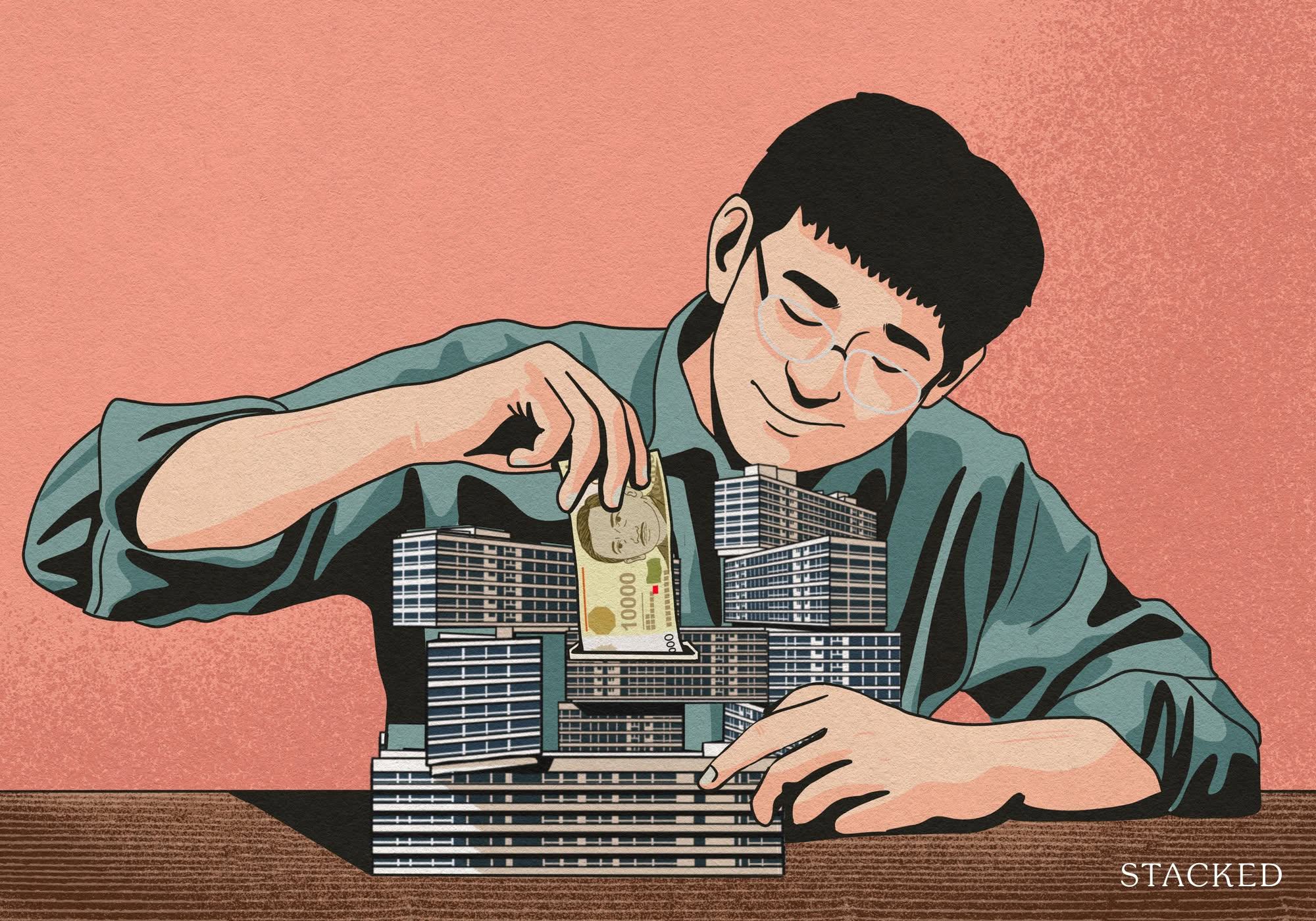
Property Advice How Much Is Your Home Really Worth? How Property Valuations Work in Singapore
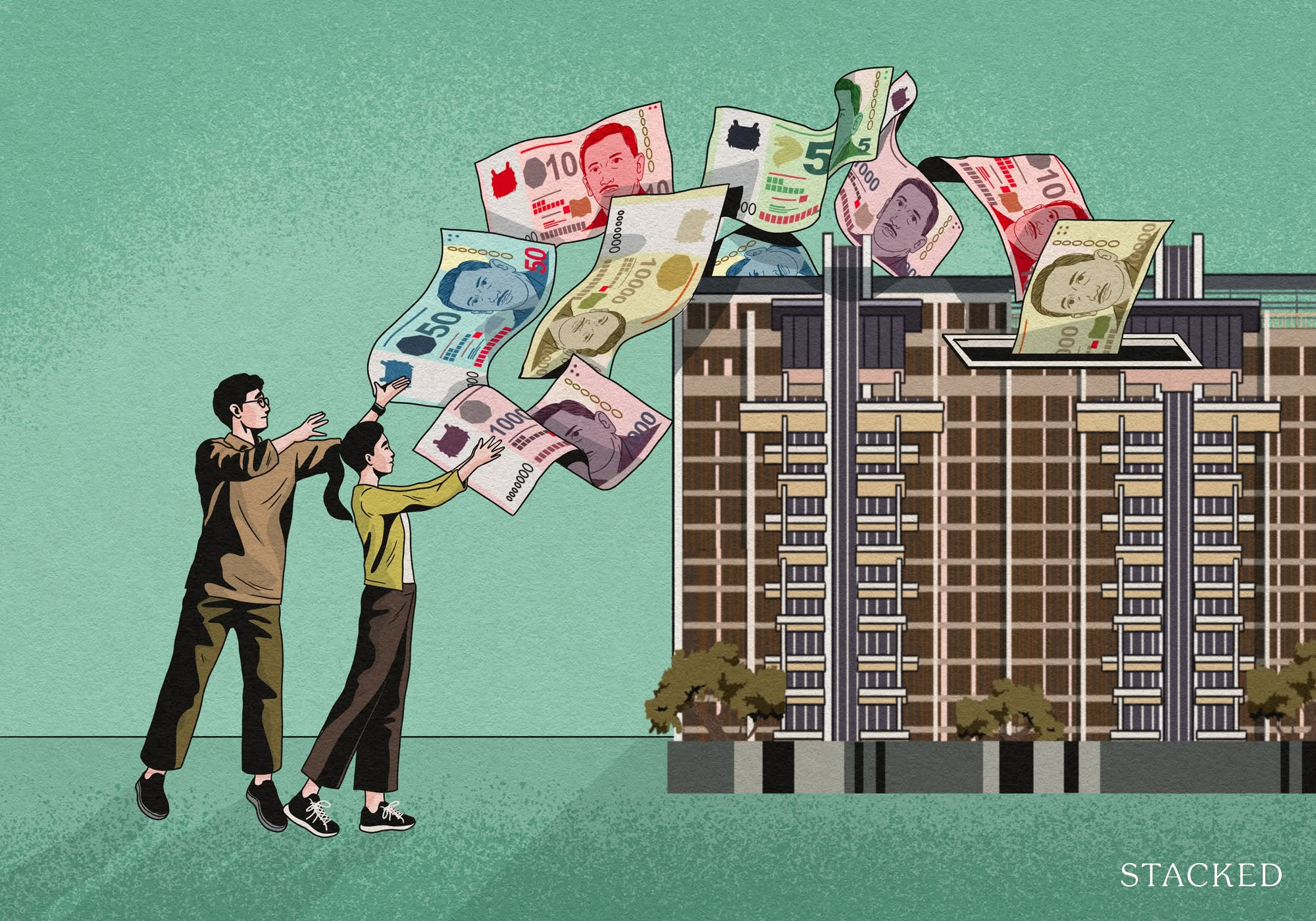
Property Advice Why I Had Second Thoughts After Buying My Dream Home In Singapore
Latest Posts
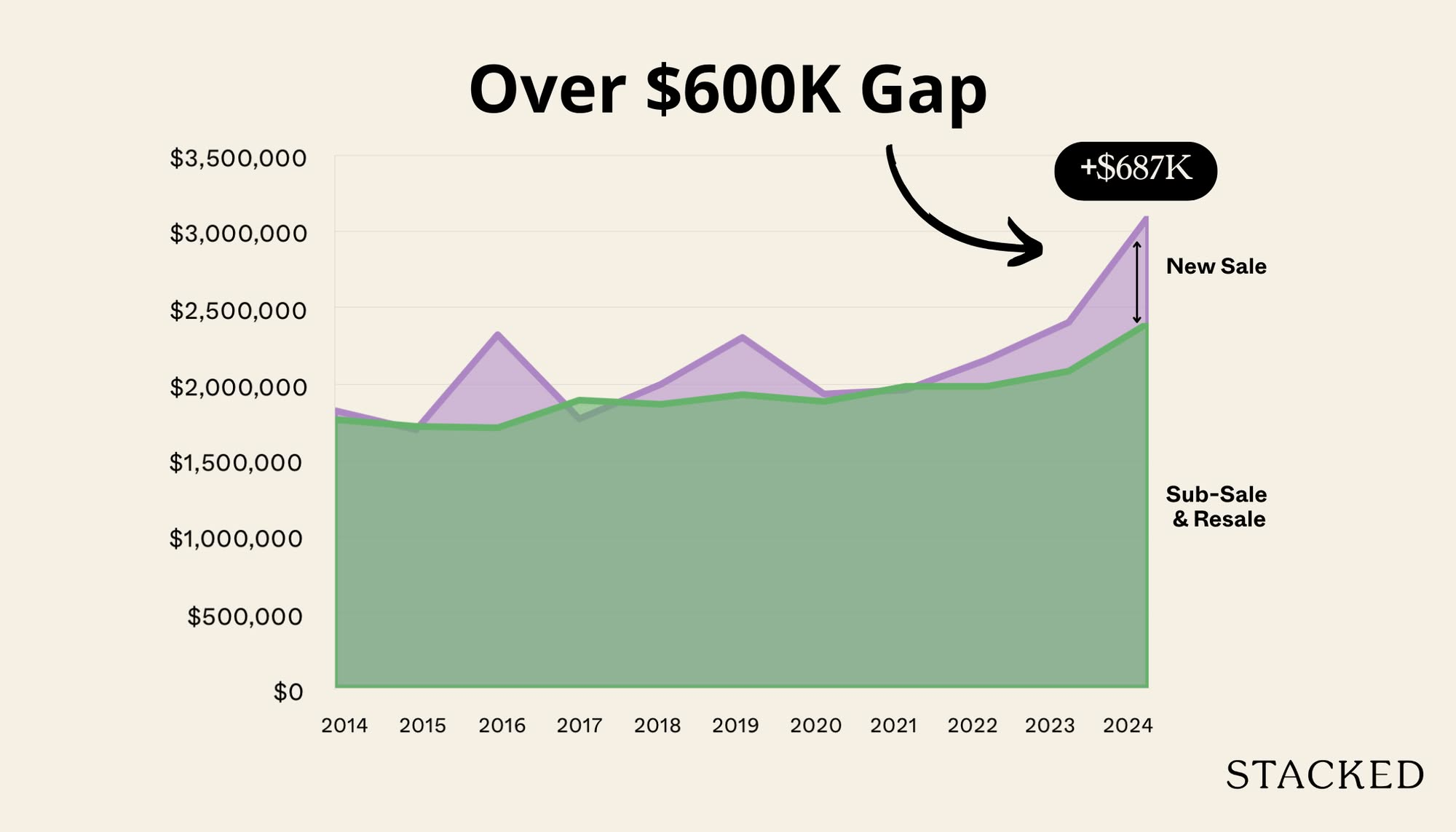
Pro We Compared New Vs Resale Condo Prices In District 10—Here’s Why New 2-Bedders Now Cost Over $600K More
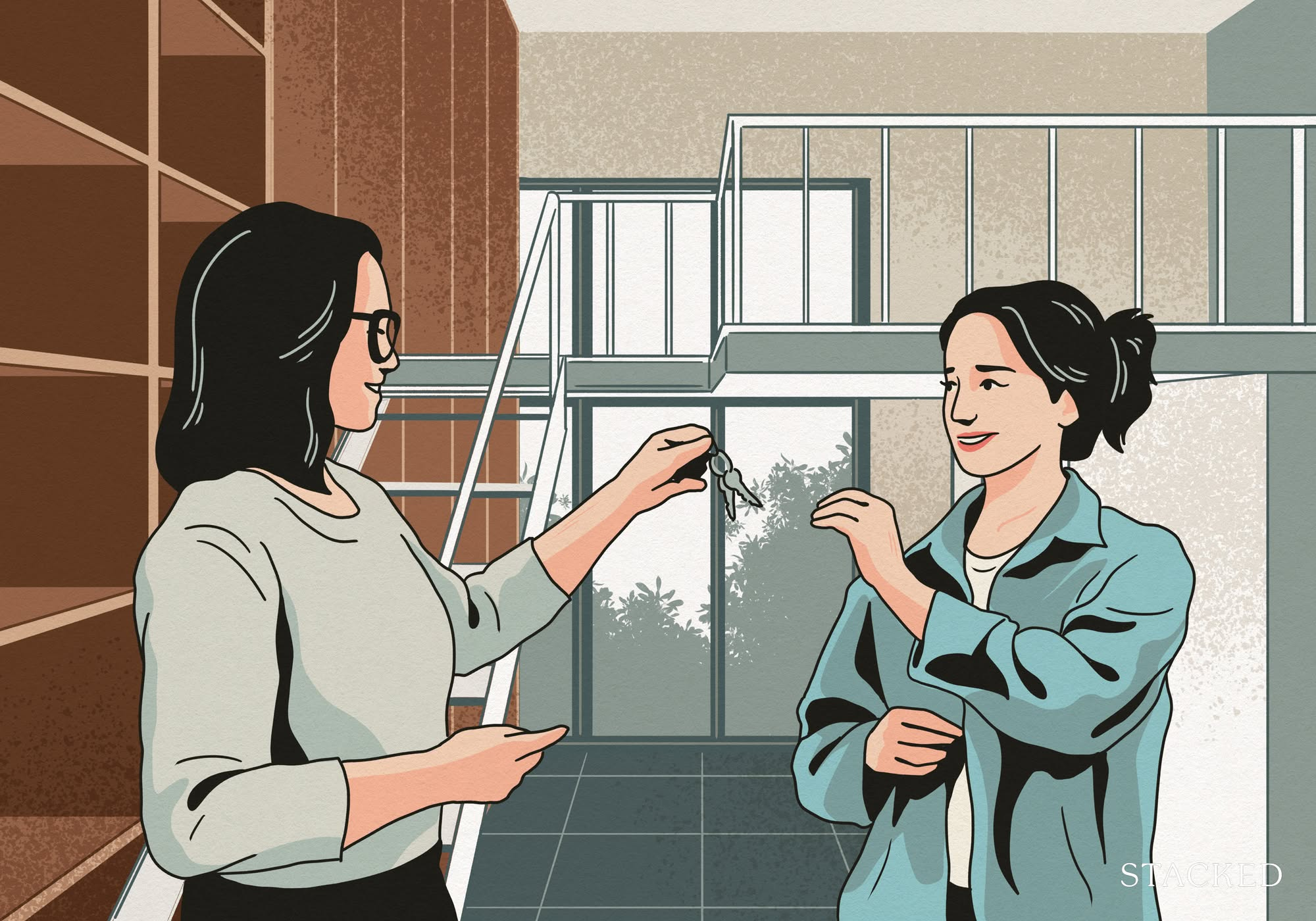
Singapore Property News They Paid Rent On Time—And Still Got Evicted. Here’s The Messy Truth About Subletting In Singapore.
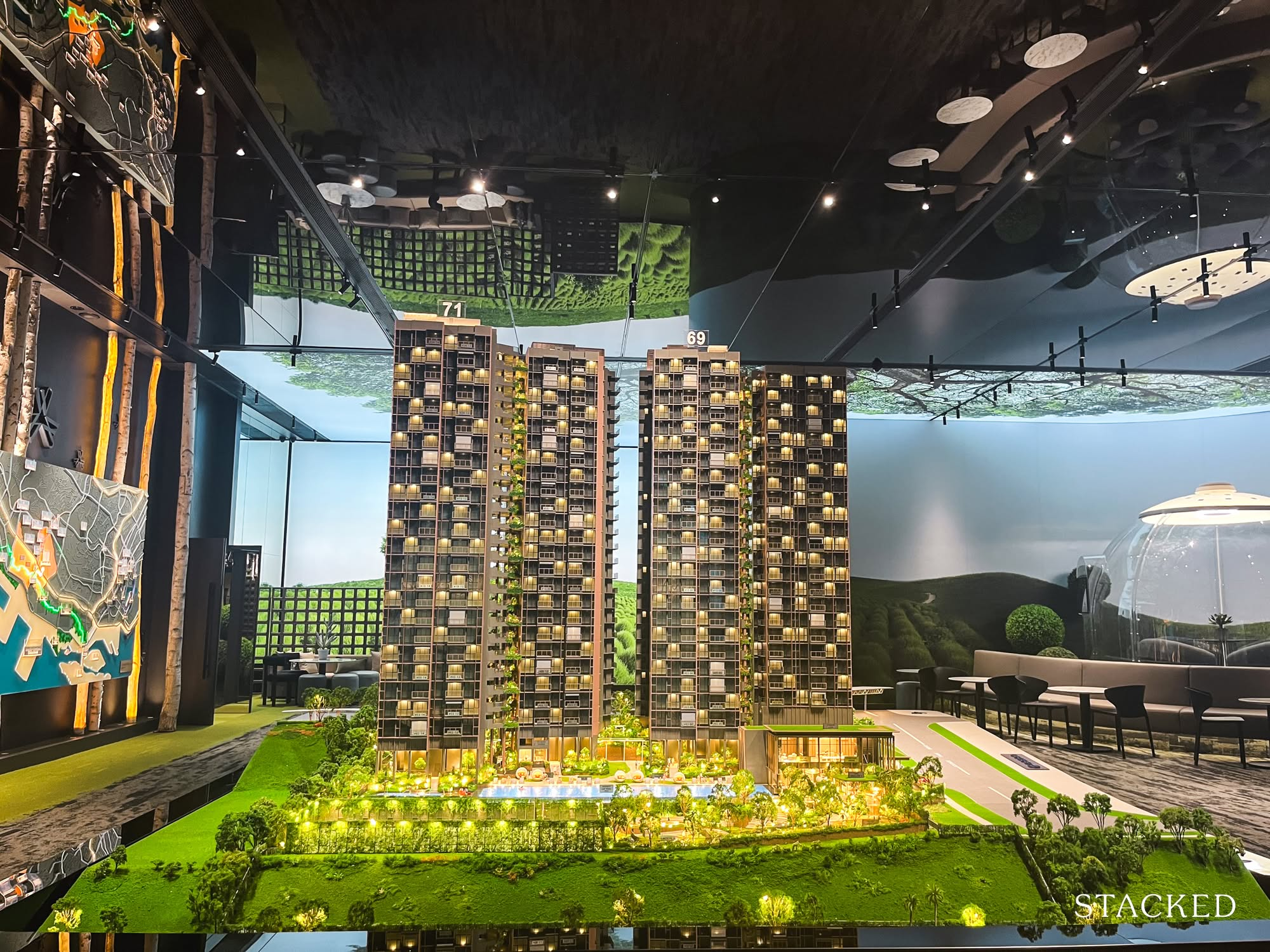
New Launch Condo Reviews LyndenWoods Condo Review: 343 Units, 3 Pools, And A Pickleball Court From $1.39m
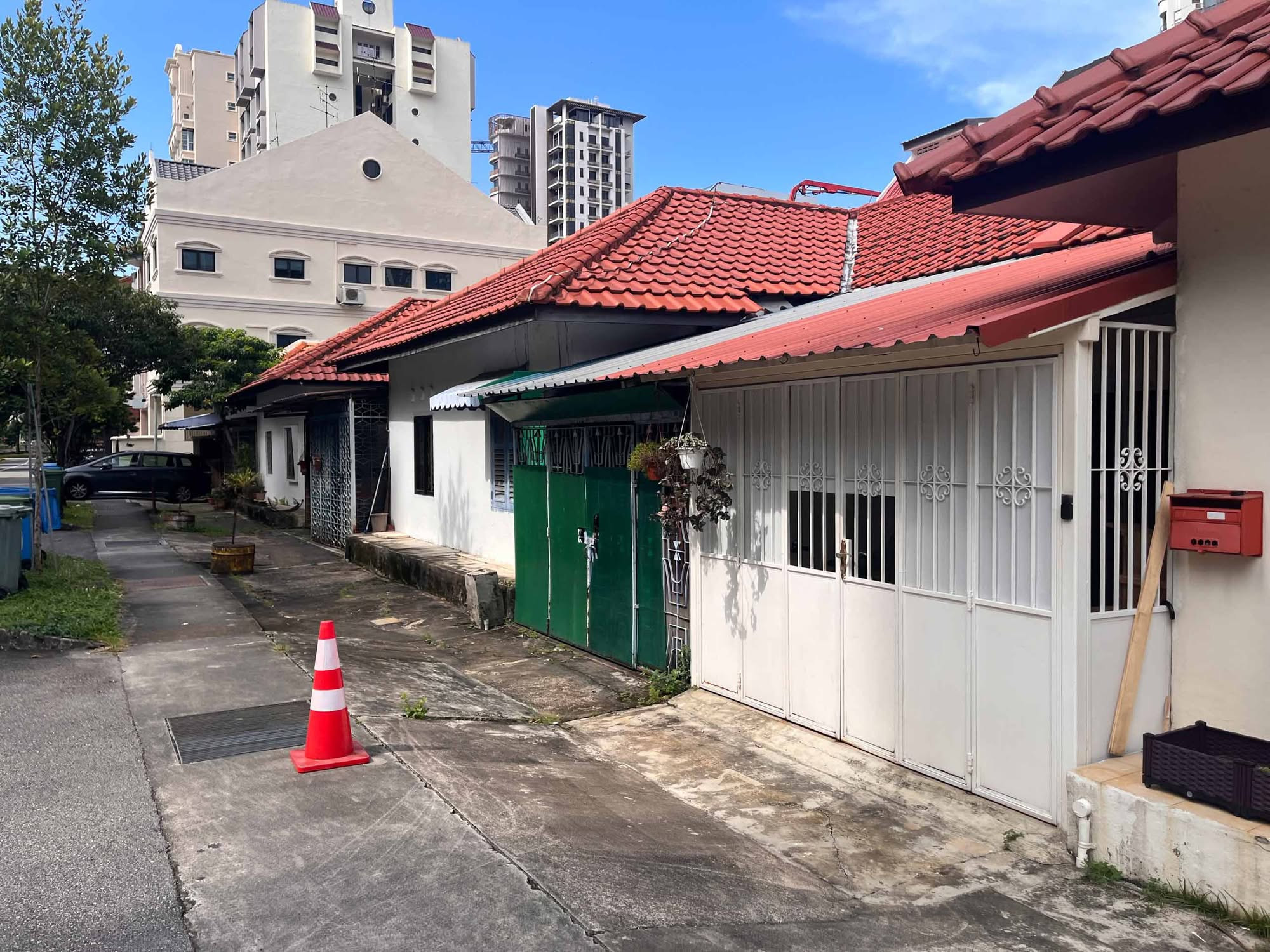
Landed Home Tours We Tour Affordable Freehold Landed Homes In Balestier From $3.4m (From Jalan Ampas To Boon Teck Road)
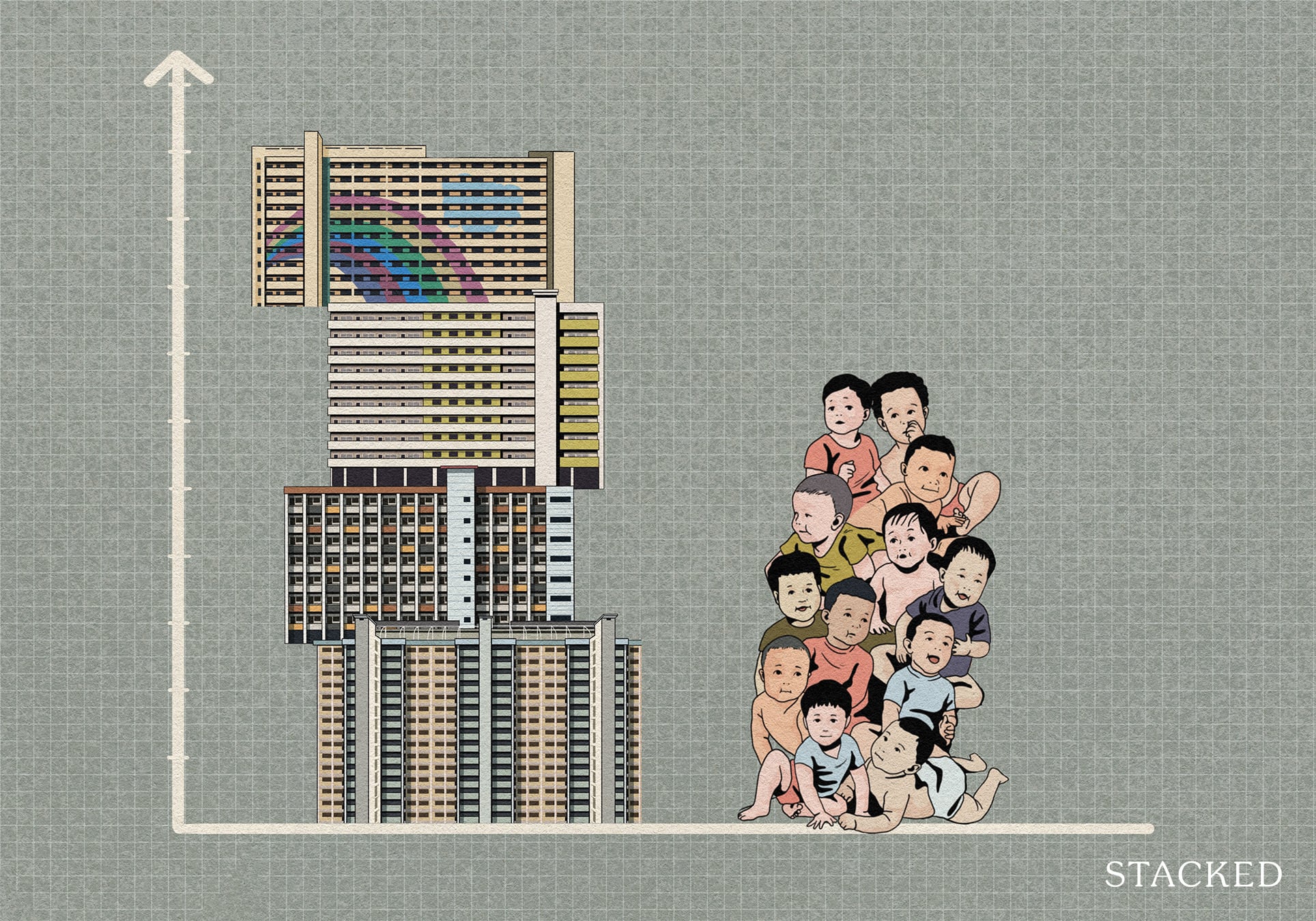
Singapore Property News Is Our Housing Policy Secretly Singapore’s Most Effective Birth Control?
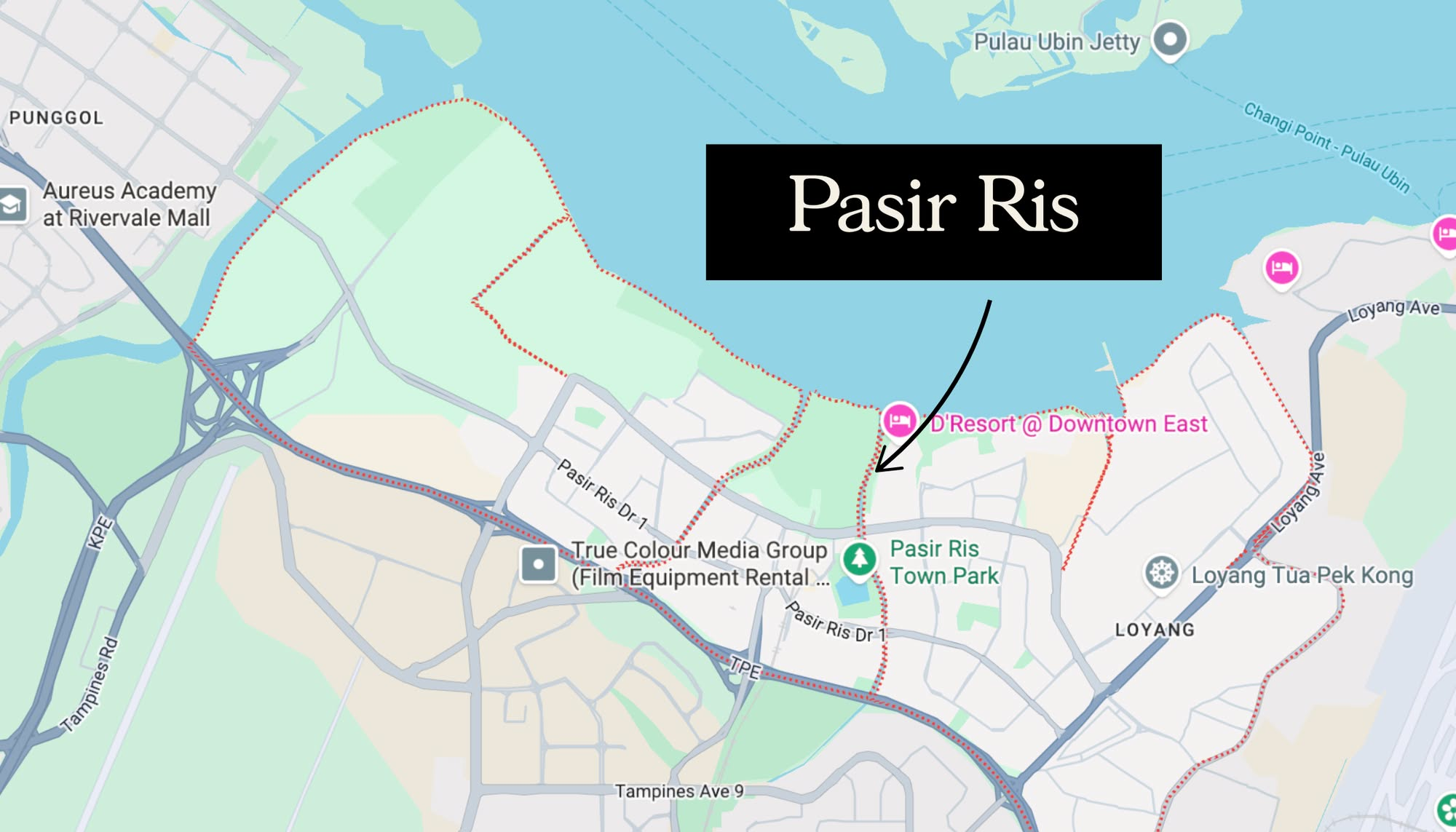
Property Market Commentary Why More Young Families Are Moving to Pasir Ris (Hint: It’s Not Just About the New EC)
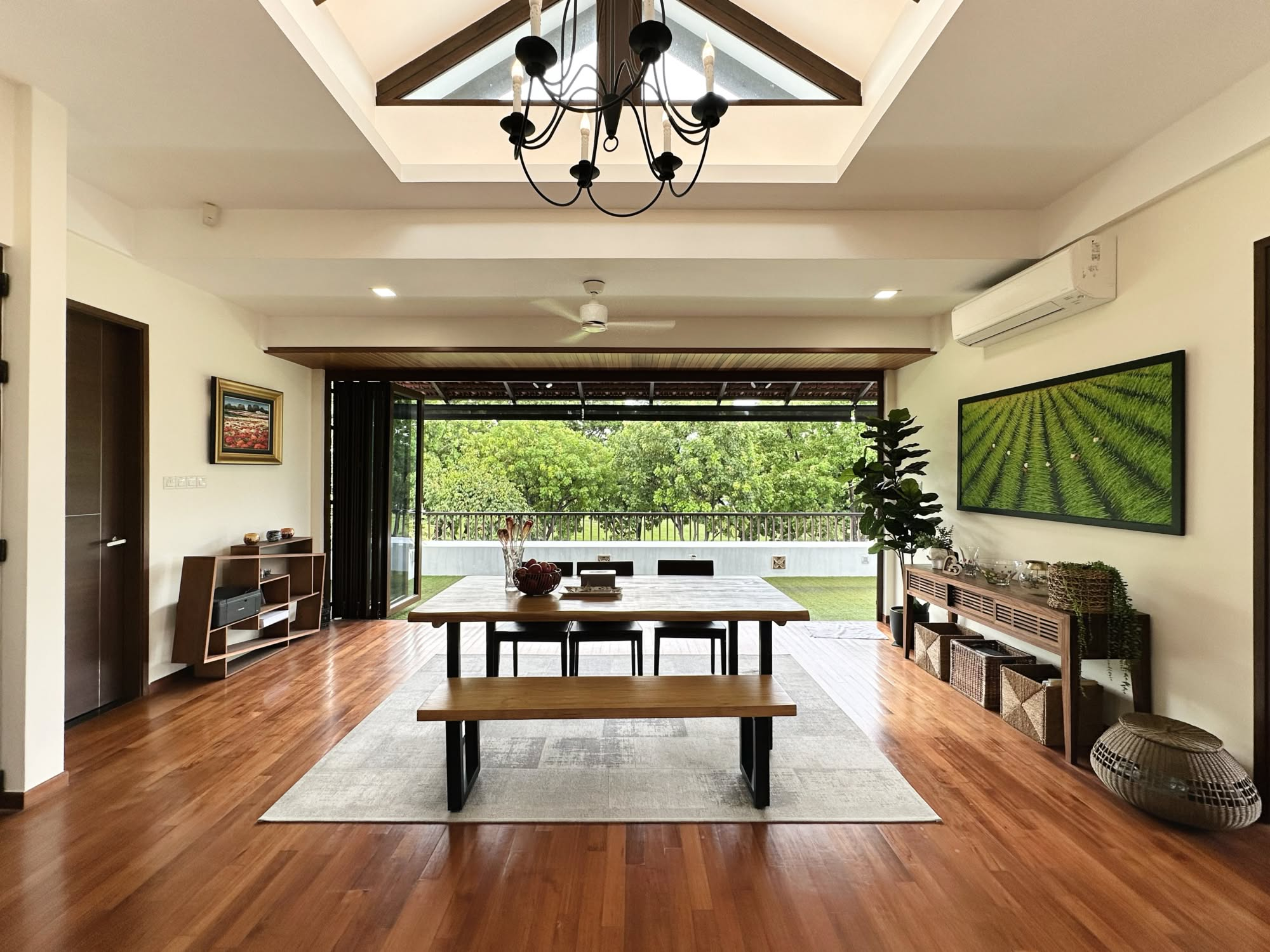
On The Market A 10,000 Sq Ft Freehold Landed Home In The East Is On The Market For $10.8M: Here’s A Closer Look

On The Market 5 Spacious Old But Freehold Condos Above 2,650 Sqft
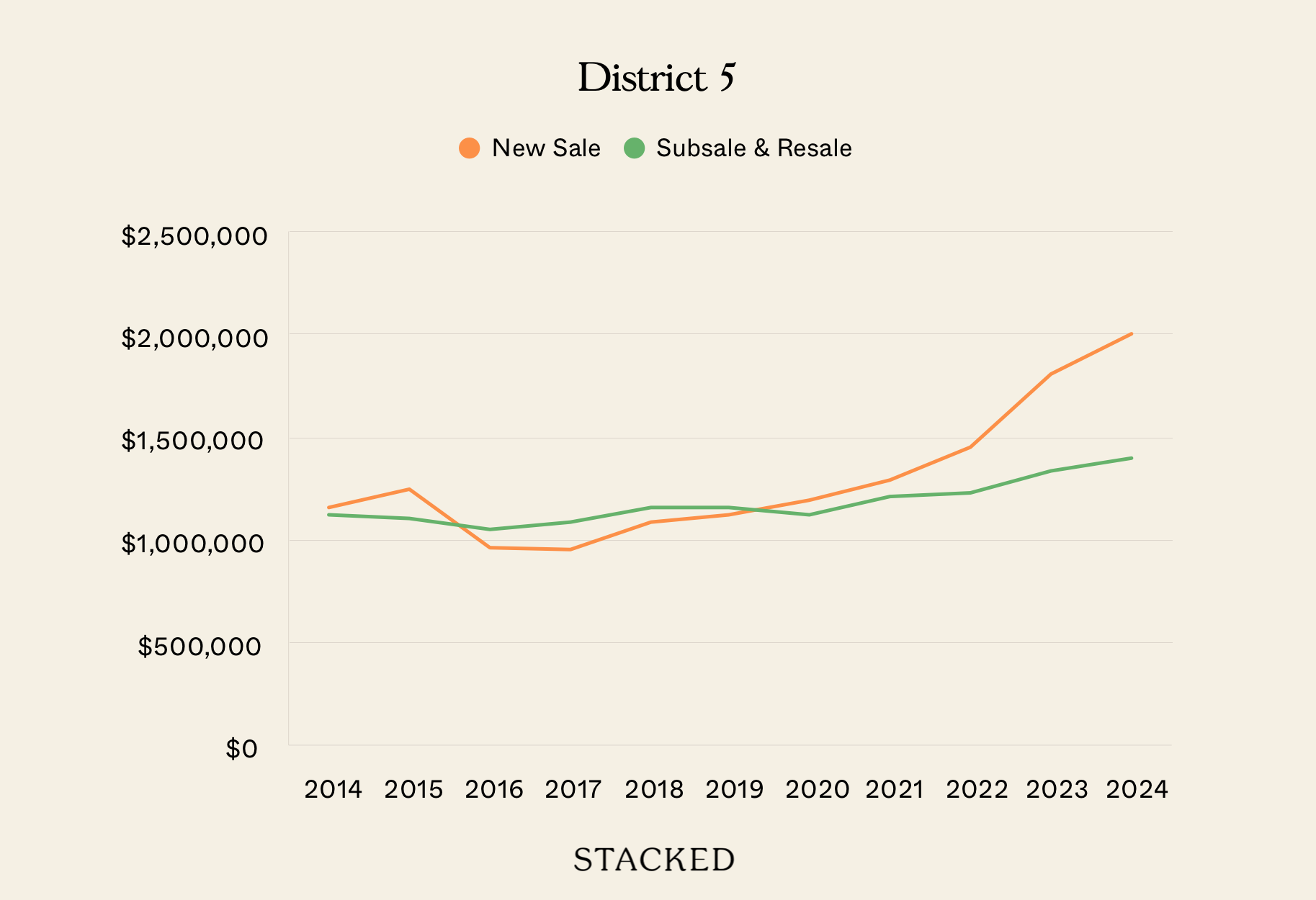
Property Investment Insights We Compared New Launch And Resale Condo Prices Across Districts—Here’s Where The Price Gaps Are The Biggest
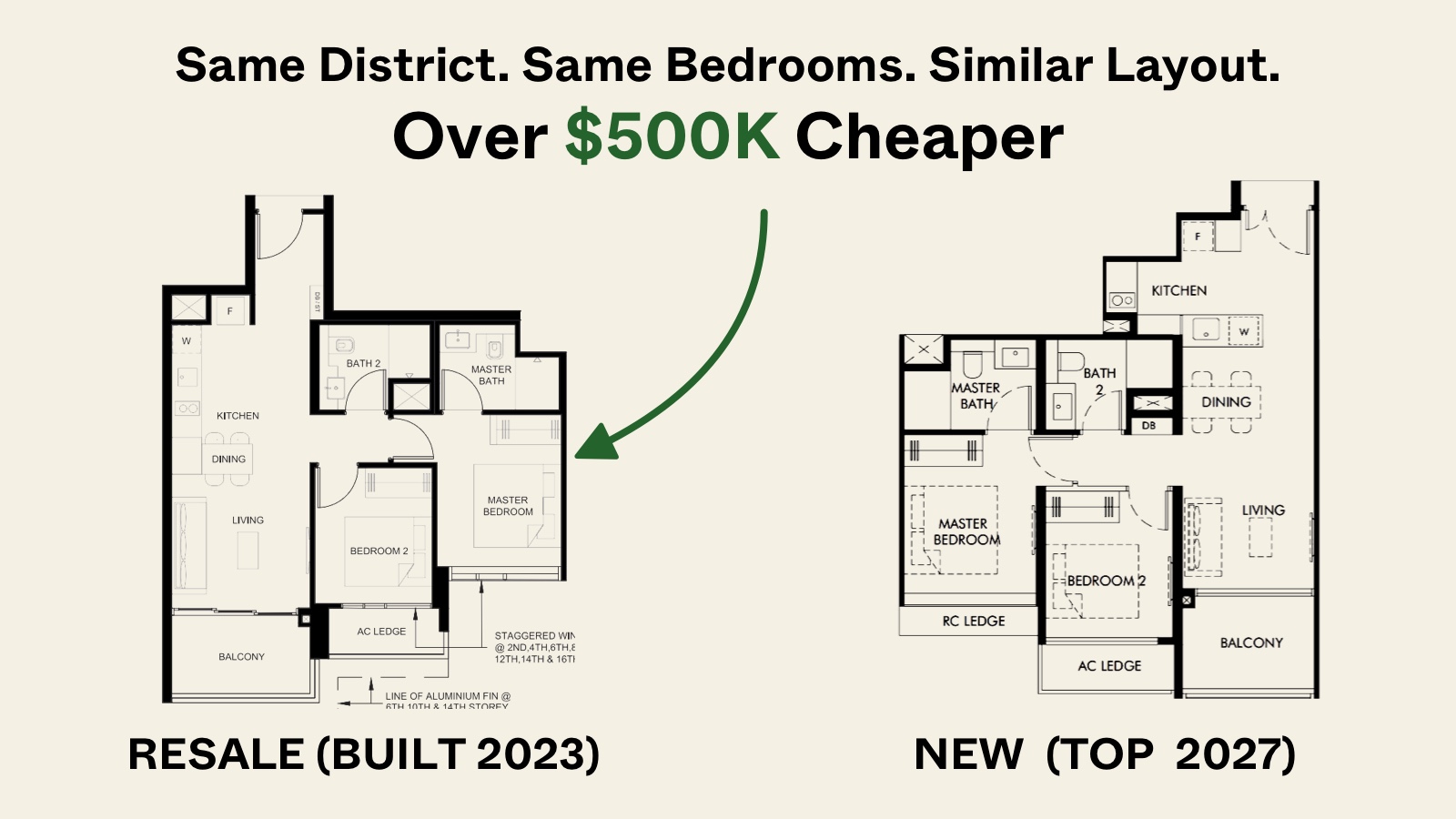
Pro Similar Layout, Same District—But Over $500K Cheaper? We Compare New Launch Vs Resale Condos In District 5
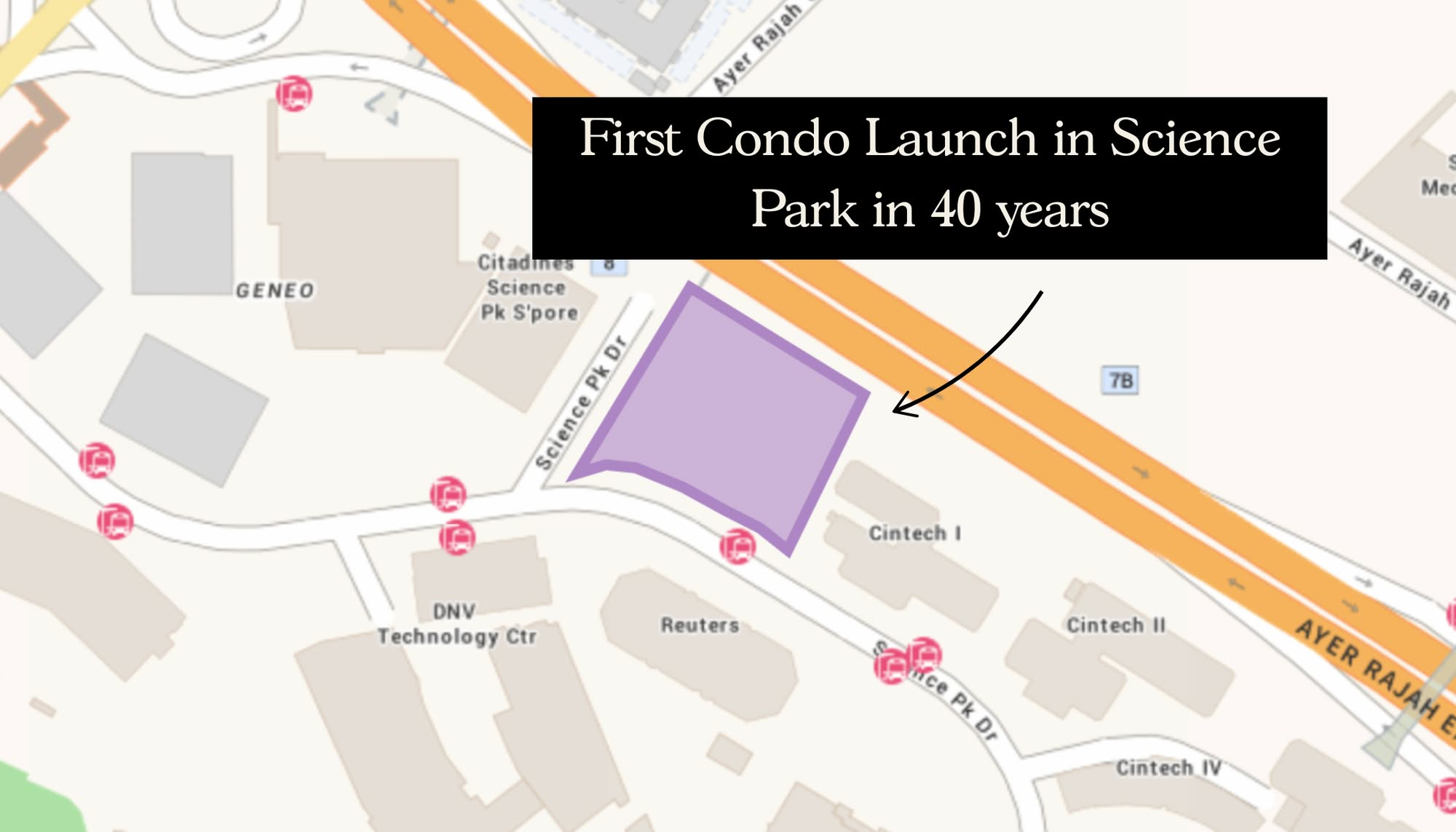
New Launch Condo Analysis The First New Condo In Science Park After 40 Years: Is LyndenWoods Worth A Look? (Priced From $2,173 Psf)

Editor's Pick Why The Johor-Singapore Economic Zone Isn’t Just “Iskandar 2.0”
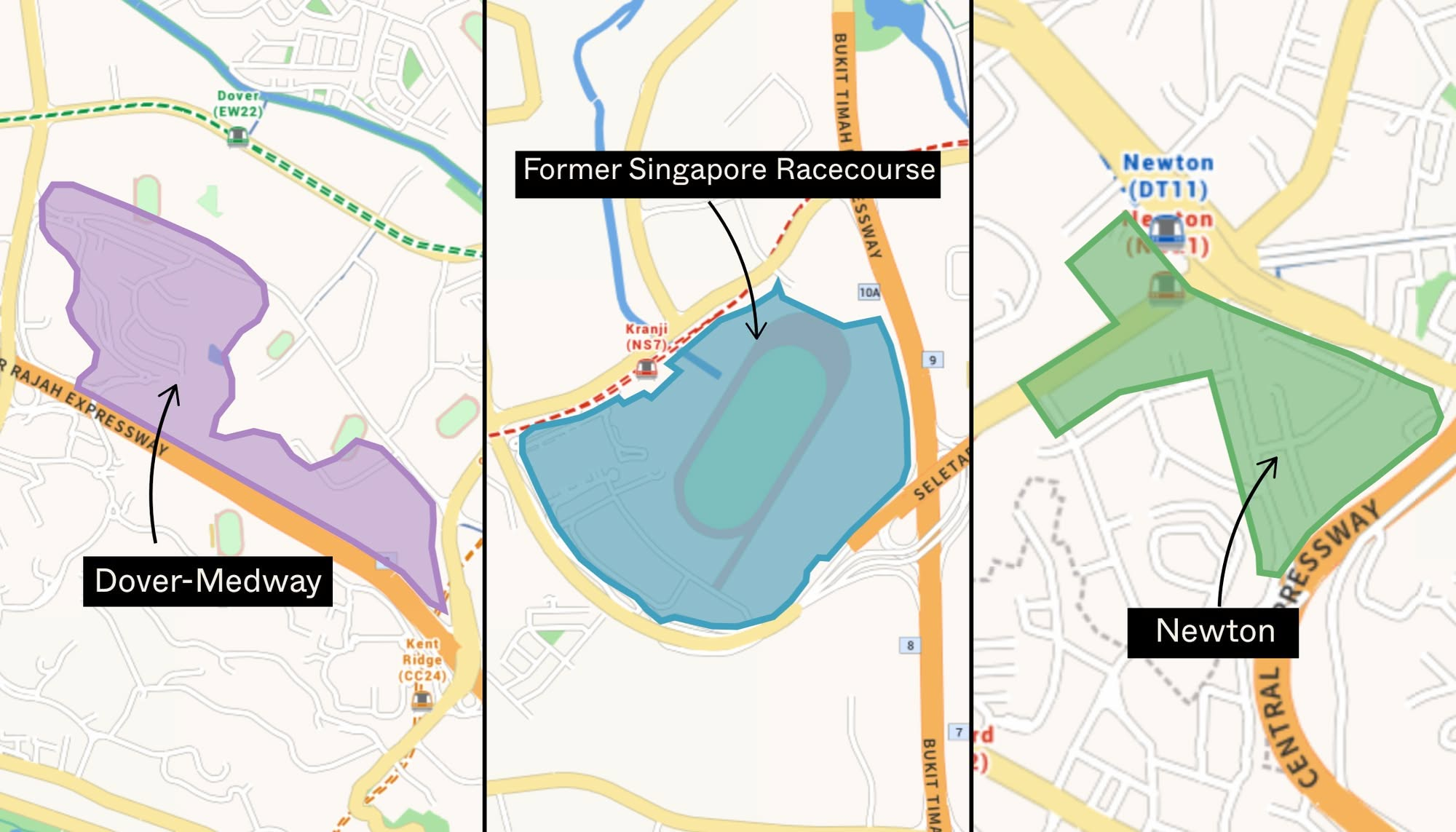
Editor's Pick URA’s 2025 Draft Master Plan: 80,000 New Homes Across 10 Estates — Here’s What To Look Out For
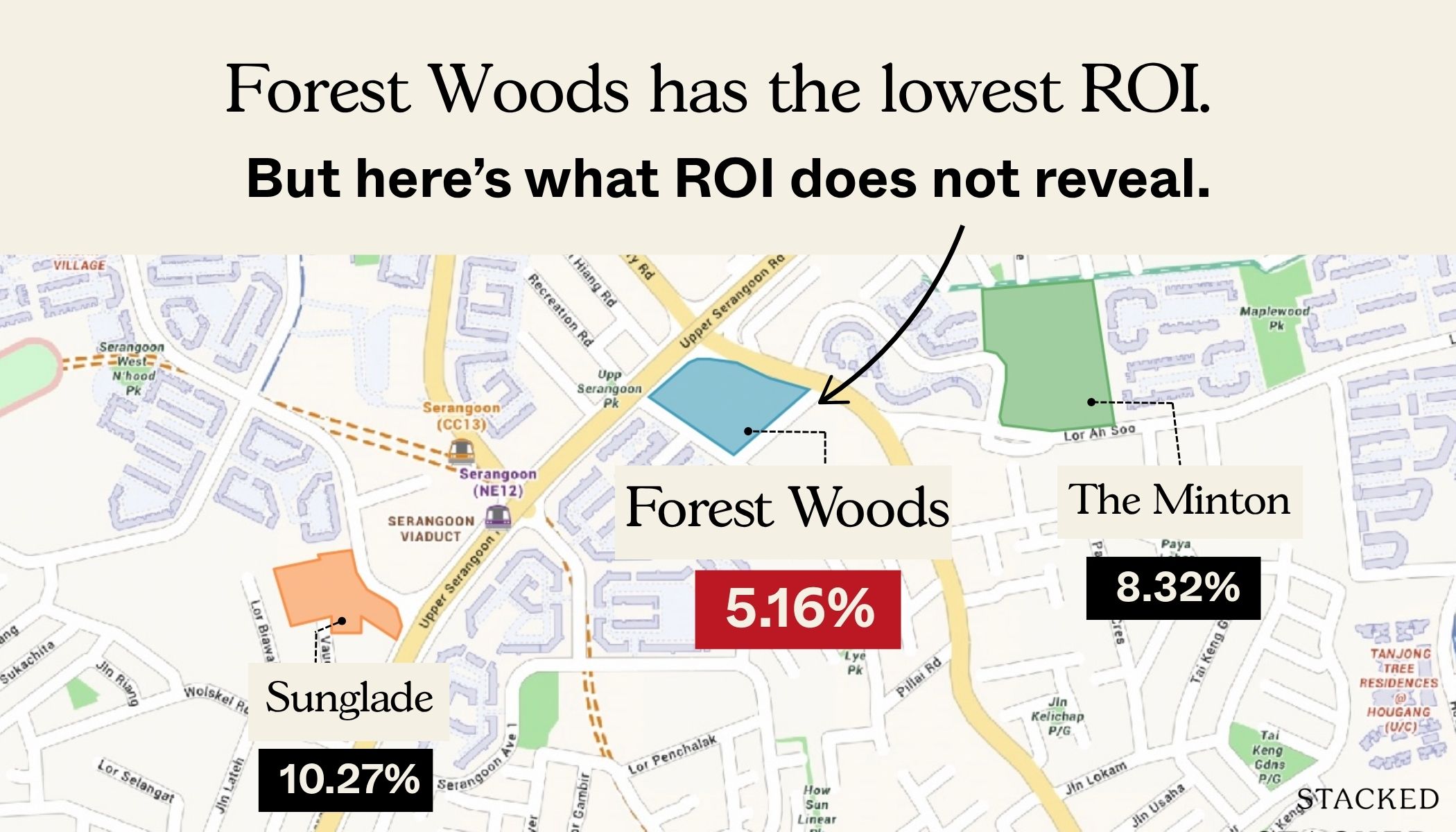
Pro Analysing Forest Woods Condo at Serangoon: Did This 2016 Project Hold Up Over Time?
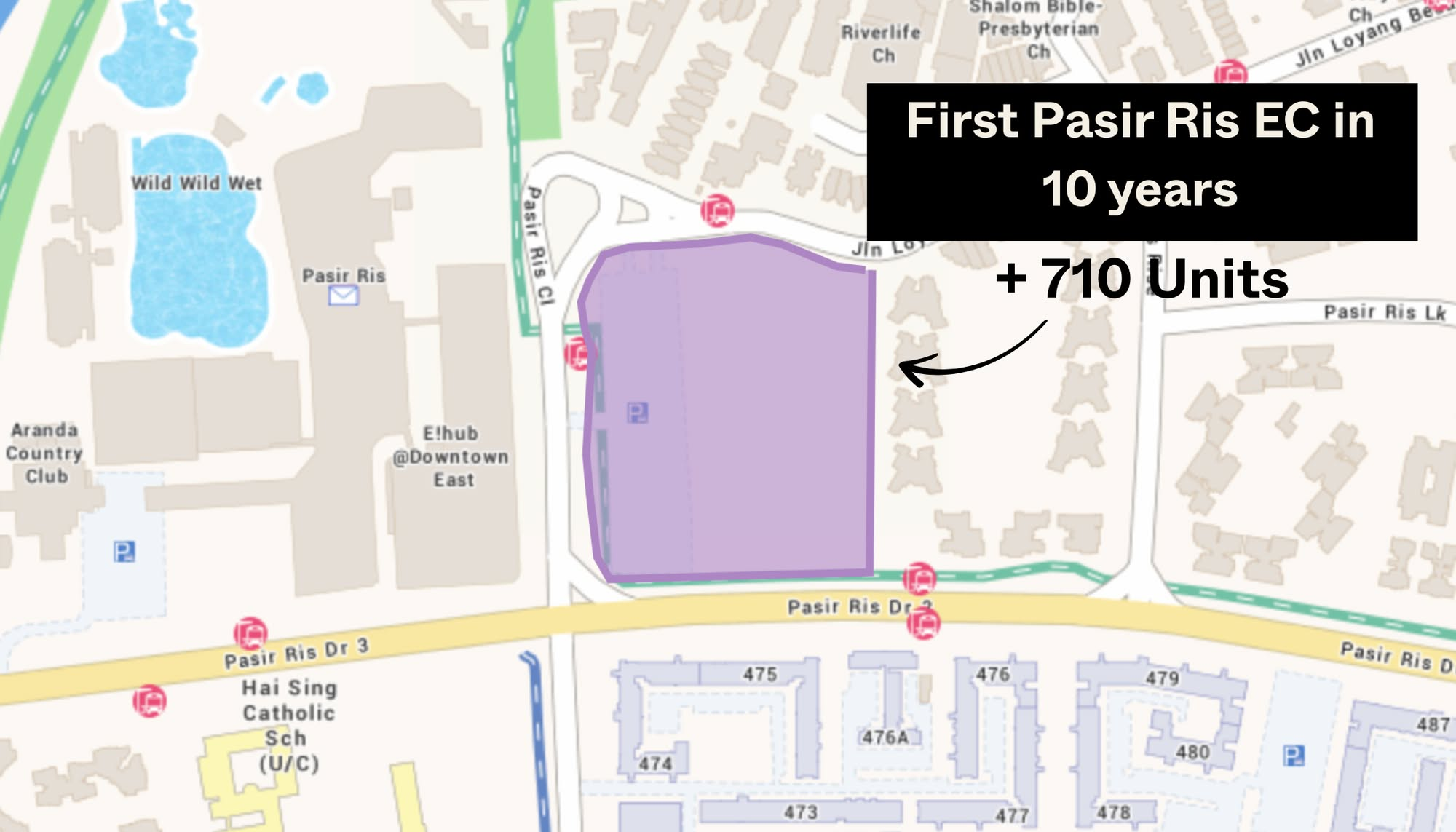
Property Market Commentary This Upcoming 710-Unit Executive Condo In Pasir Ris Will Be One To Watch For Families
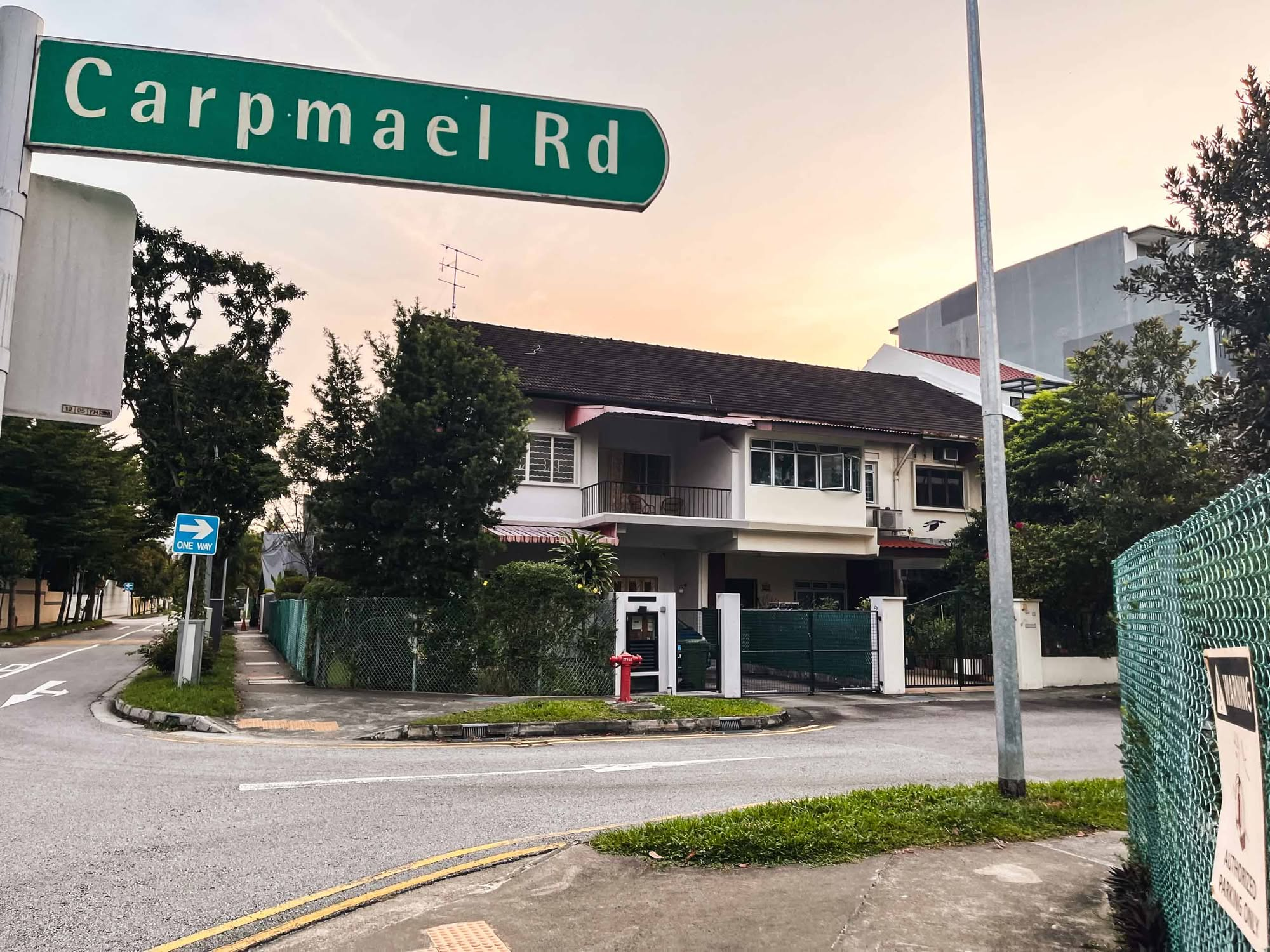


Non-banking financial institution = ah long?
Lol removing comments are we? NO vulgarities, abuse or slander targeted at anyone either. You just lost yourself a reader.